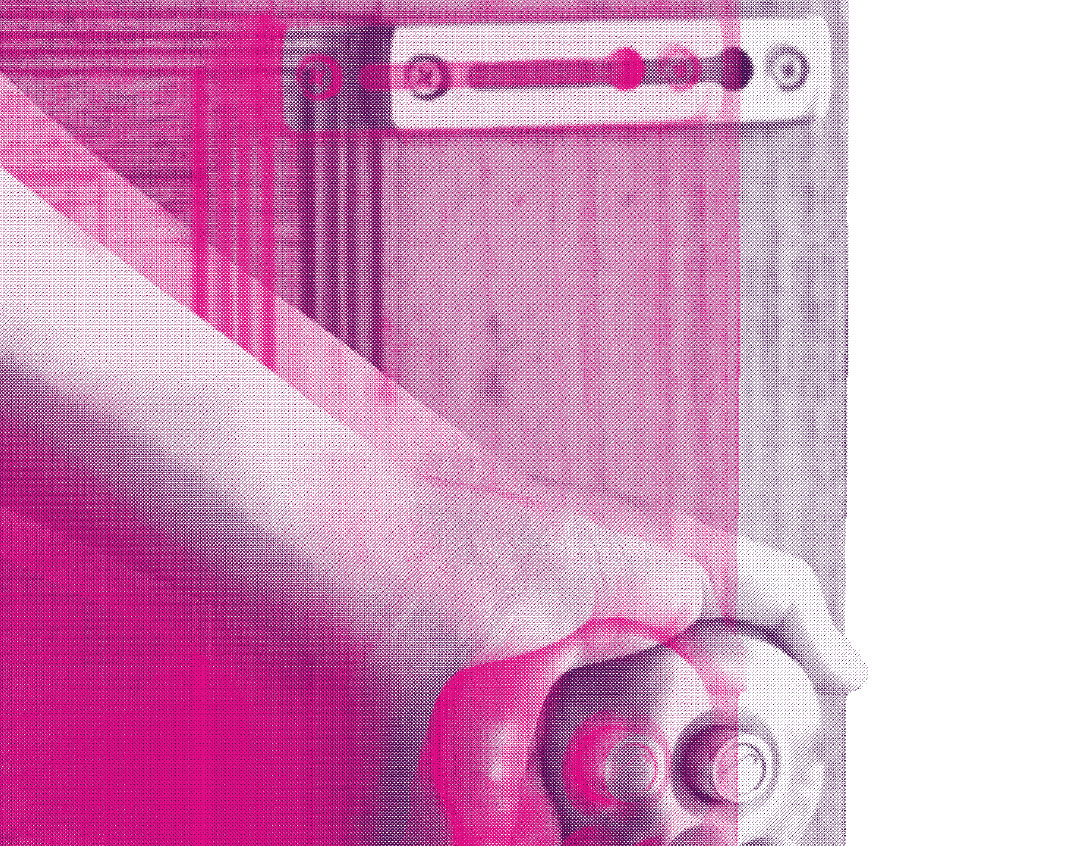Open Invitation

And then, Becca invited me to join her on a Birthright trip to Israel. I didn’t think much about it, just signed up, figuring I could do with a break from the depressing atmosphere, and had nothing much to lose

Debbie: You were my only chance at inspiring my sister.
Mrs. Frankel: I can only keep giving if i take a step back for now.
When I became a baalas teshuvah, my family basically wrote me off as crazy.
Not that there’s a whole lot of us. There’s just Dad, who’s pretty tolerant and only really gets heated up over soccer, and my two siblings, Dan and Liz. Dan was studying to become some kind of actuary, which I thought was kind of crazy, too. Who takes math past high school?
So that left Liz.
She’s my big sister, but she’s always been kind of like my mother. Mom died years ago, when I was still in elementary school. Liz was in high school already, and she knew how to make omelets and chocolate chip cookies, so she and the housekeeper, between them, kept our place going.
Liz was my role model in other ways, too: She taught me how to mousse my hair into scrunchy curls, she tutored me in algebra, and made me surprise smoothies before my Regents. I missed Mom, but Liz took the edge off it.
It was only later, when I was nearly graduating high school myself, that I realized that Liz wasn’t all that perfect, after all. She’d been so busy taking care of everyone else, it seemed, my big sister hadn’t taken the time to care for herself. I started noticing red-rimmed eyes and shaky hands, all-nighters on the phone or computer, shouting matches with her boyfriend. She’d work for 48 hours straight, then take off days of “sick leave.” She was a mess.
It made me sadder than losing Mom, realizing that my big sister was fallible, that she needed help.
That was when I looked around at my little, splintered family and realized it wasn’t the place for me anymore. Dad, with his popcorn and TV remote, Dan with his piles of books. I had this real fear that I would turn into a Dan — run headlong into my studies and block out the world — or risk losing it like Liz, if I stayed home.
And then, Becca invited me to join her on a Birthright trip to Israel. I didn’t think much about it, just signed up, figuring I could do with a break from the depressing atmosphere, and had nothing much to lose.
And, as it turned out, everything to gain.
Israel was a burst of Technicolor after the gray monotone of home. Everything was brighter there: the shocking blue sky, the dazzling sunshine. I fell in love with the palm trees and the hills and the white stone of Jerusalem. I was home.
I canceled my flight back to the US and enrolled in a small baalas teshuvah seminary recommended by the trip coordinators. Becca, who was off to medical school in September and had no intention of turning her comfortable life around, was kicking herself for being the one to push me to go on this trip. She claimed I was going to become a fanatic, all dressed in black and with ten children. I laughed it off: I’d never felt so good in my life, and I knew it was just beginning.
I loved the seminary, the teachers, my newfound friends on similar journeys to mine, only each of our stories were so unique. I loved Shabbos and the peace that descended on the city, I loved the Kosel and the conglomeration of a huge family I never realized I had. The only thorn in the bed of roses was the reaction of my family.
“Debbie, seriously, give it up,” Liz begged me over the phone. “This religion thing, it’s not for us, it’s weird and outdated.”
She tried pulling the trauma card. “It’s because of Mom, I know it is. You’re traumatized from the feeling of abandonment. Come home, and I’ll find you a good therapist. You need to work through it, not run away.”
It was ironic that she was talking like that. She clearly needed help, and I — well, I’d never felt so healed and whole before. And the teachers in the seminary, they really listened, they really cared. I was coming out of my shell, first starting to eat meals at some of the teachers, then eventually opening up to one of them, Mrs. Frankel, about my family. Her warmth and caring made all the difference.
“Liz, don’t worry about me,” I told my sister. “I have so much support here. It’s not that. I mean, maybe that’s what made me come to Israel in the first place, but really, it’s amazing here. I’m home now.” And then I dared to add, “Maybe come try it out? See for yourself?”
She slammed down the phone.
I didn’t hear much from Dad, and our weekly phone calls were of the how-are-you, good-and-you variety. Dan was valedictorian and landed a job in some big company, so he moved to New York to make his millions. And Liz, although she’d been seeing her own therapist all year, didn’t sound any better. We spoke on the phone after midnight Israel time, when it was a reasonable time in the States, and she would tell me how hard it was, how lonely, what a dead-end job she had, Dad’s health issues. The conversations always ended with her begging me to give up the “craziness” and come back home, and me trying to convince her to join me, how much happier she’d be. Invariably, she would get angry, insist that I needed help, and we’d end the conversation on a bad note.
I was doing great in seminary, making progress in my observance and drinking in the classes. But on the days after our late-night conversations, I was a wreck. I missed class and couldn’t talk to anyone. My roommate was hurt when I snapped at her for asking me why I wasn’t getting out of bed, and Rebbetzin Neuberg, the seminary’s menaheles, sent for me to ask if there was anything wrong.
I told her it was a family thing, and I’d be back to myself soon, but it happened again. And again.
“You need to move on, focus on building yourself up,” Mrs. Frankel advised me, when I finally broke down one Thursday evening in her kitchen. “Of course it’s natural to care about your sister, but at this point, you need to take the time to solidify your own growth and emotional well-being. Later, you can reach out to her more, talk to her, but right now you’re not strong enough to be there for both of you.”
She was right. I reached for the tissues and tried to calm down. “But she’s everything to me.”
Mrs Frankel set down a glass of water. “You have a very deep attachment to her.”
I nodded.
“It will come, Debbie. Don’t worry. These things take time and you’ll be able to build a better, healthier relationship if you keep some distance now.”
I took her advice, although it was terribly hard. I stopped arguing with Liz, just empathizing with her and staying firm in my resolve. I kept our conversations shorter and limited to normal daytime hours, so that they wouldn’t steal my sleep. I apologized to my roommate, threw myself into my studies, and made a habit of spending Thursday evenings with Mrs. Frankel, ostensibly to help her cook, but really to have the coveted few hours of conversation with her.
I became a regular at her Shabbos table, too. I loved her cute kids and was impressed by the maturity of her teens. I was pleasantly surprised to see how normal they were, they had a sense of humor and were fun like other teens, but were still so respectful of their parents and each other, and took the important things in life seriously.
“Liz, I’m telling you, if you come to their Shabbos table just once, you’ll understand why I’ve done this,” I told her, in one conversation where I let down my guard a little.
She snorted. “You should know me better than to think some chicken soup will change my mind.”
But it wasn’t just the chicken soup, I thought, sitting at the Frankels’ table the next Friday night. It was the family feeling, the way Rabbi Frankel took our questions so seriously, how little Shira piped up with her devar Torah and Mrs. Frankel sneaked a special tub of mayo-free dressing onto my plate, since she knew I didn’t like the regular salad dressing she’d prepared.
My friends at seminary liked to see different families, experience a variety of Shabbos meals. I just liked how at home I felt at the Frankels’. It was the first time I’d ever had the feeling of being part of a family.
After a few years of intense learning, I was ready to move on from seminary. I found an apartment and a job and started shidduchim actively. I spoke to shadchanim and went on a few dates that didn’t really lead anywhere, but it was okay, I was happy to bide my time. I was still learning, still calling Mrs. Frankel with all those nitty-gritty questions that came up in the kitchen. I was often invited out by families, but never more than once or twice, and my favorite Shabbos venue remained the Frankels’. We kept up our Thursday cooking sessions, too, and some nights I went there just to hang out.
“So I started talking to Liz a lot more, recently,” I told her one Wednesday evening. We were chopping vegetables, her hands moving with a speed I envied, mine peeling potato after laborious potato.
“How’s that going?” she said, predictably, but she seemed distracted.
“I think it’s good. I think she’s calmed down a little, she sees how happy I am.” I paused, then said shyly, “You know, I think you were right. I needed to build myself up, to grow more confident and happy with where I am… the vibes just flow outward then. Like we learned, about the kos that overflows, you know?”
I thought she’d be impressed by the reference to a class from many months ago, but she responded with a vague, “That’s good,” and her mind was elsewhere.
I gave it up and changed the subject.
“Debbie, I hate to do this to you,” Mrs. Frankel said suddenly, cutting into a story from work just before the punch line. “We’re going to have to leave it for tonight, I’m a little busy. Come over tomorrow, we can talk more, all right?”
I was surprised — I could count on one hand the number of times Mrs. Frankel has been “too busy” for a student in the time I’ve known her. But everyone’s entitled to a private life.
“Sure,” I said.
The next night, I filled her in about Liz again, and this time her face lit up. “That’s great, Debbie, good for you! Remember that your job isn’t to be mekarev her. The best thing now is for you to be empathetic, and set an example by showing her happy and fulfilled you are.”
She slid a tray of kugels out of the oven. “Here, Debbie, take one back to the apartment. Are you eating there this Shabbos?”
I was surprised at the question — she’d usually invite me, not assume that I had plans. And I’d been fully intending to take her up on it this week: Last week we’d hosted a girls’ Friday night with a group of friends still in seminary, and this Shabbos my friends were all invited out.
“Um, is it okay if I come here for the meals?”
I waited for her to laugh and say something like Since when do you need to ask, Debbie? You’re part of the family. But apparently, the script had changed.
Mrs. Frankel looked distinctly uncomfortable, then she said, “I’m so sorry, Debbie, I’m cutting down on the hosting just now. Are you okay with that for the next while?”
While? Did that mean a few weeks? A few months? A few years?
I didn’t know what to say. It was a punch in the stomach, a shock to me that she’d even think about not having guests, that I would ever not be welcome at my home-away-from-home.
“Uh, well, I guess so,” I said, finally. Grow up, Debbie, don’t start to cry here. She’s also entitled to say no sometimes.
Mrs Frankel walked me to the door, looking anxious. “I’m sorry you were relying on me this week, Debbie, if you don’t have anywhere else then I guess for this week it’ll be okay….”
“I’ll be fine,” I said. No need to stick around where I’m not wanted.
For a while, I couldn’t bring myself to go back there, but then a couple of Thursdays later, I missed a call from Mrs. Frankel. She left a voicemail: Hi Debbie, I’m thinking about you. Haven’t heard from you in a while. I hope you’re not upset about the Shabbos meals, it’s not personal, just a change for my family, we’re not hosting right now. But please come over tonight, or sometime next week, to catch up!
The relationship meant too much to me to lose it in a fit of sulks. Also, I was more mature than that. So I went, we talked a little, and I reveled in the familiarity of the Frankels’ household.
Without my steady place at the Frankels’, Shabbos invitations were a little scarce, but I started to enjoy making my own, with my friends or even without. I liked experimenting with cooking, and if it was ever a little lonely, I’d remind myself that this was all temporary. I started dating someone new and it was looking good. Hopefully, in the not-too-distant future, I’d have my own Shabbos table.
And then, one Wednesday afternoon, Liz called.
“Sit down, Debbie.”
I was sprawled on the couch with a book, but at her tone of voice, I sprang upright. “What’s going on?”
“I’m in the airport. I’m coming to visit you.”
If she would’ve told me she was in a spaceship on her way to the moon, I couldn’t have been more shocked.
“Whaaat?!”
“Hey, I miss you, little sister,” she said defensively. “You haven’t come back to visit, and I haven’t seen you in forever.”
Then she had to go, her flight was being called, and I was left, stupefied, looking at the blank screen of my phone.
Liz. Coming to Israel. Now.
This was my one and only chance to show her what Judaism was all about, the warmth I’d been raving about for three years. She’d come to the Frankels’ with me and—
Wait. Mrs. Frankel wasn’t hosting guests anymore… but surely she would make an exception this week?
I dialed the familiar number with shaking hands.
“Debbie!” she sounded warm and caring as always. “What’s the good word?”
“Liz is coming,” I blurted. “She’s on her way to Israel and I need to — I want to show her what a Shabbos table is like, what I’ve been telling her about all these years…”
The line was quiet.
“Debbie, I wish I could help you out,” Mrs Frankel said, her voice strained. “But Shabbos meals aren’t going to work. How about you come for a regular dinner one evening?”
Disappointment seared my chest. She wasn’t really refusing me this, was she? And she knew how important it was to show Liz how happy I was…
But my teacher couldn’t read my mind. “Do you want me to find you two a meal somewhere?” she offered. I swallowed, hard, and finally said yes. I’d been planning to eat at home, alone, but that wouldn’t do anything to show Liz the beauty of a religious family’s Shabbos. Still, anywhere but the Frankels’ would be unfamiliar, and who knew if the atmosphere would have that magical spark that I knew I could find at my teacher’s table?
I imagined Liz, expecting to finally meet my famous teacher, and me having to explain that we were eating at some stranger. I imagined her mocking look, her snide response: Oh, so I’m not going to meet that wondrous woman after all? Is she even real?!
For a few minutes of hope, I’d envisioned reconciliation with Liz, a newfound relationship, an awakening of her inner spark. I’d hoped to lead her on a journey of healing, of finding herself, of happiness. Now, the dream bubble had burst, and all I could hope for was damage control.
How could she do this to me?
If I could tell Mrs. Frankel one thing, it would be: You’re my only chance at inspiring my sister — how could you let me down?
Mrs. Frankel
Debbie called just as Shmuel Zev walked in.
“Hi, Debbie,” I said, giving my husband a smile and a bowl of soup. “Everything okay?”
Debbie was my student, one of the big success stories of our seminary. Having become religious a year or two ago, she’d just moved out to her own apartment and was spreading her wings, ready to move forward in life.
“Oh, Mrs. Frankel, I’m so glad you answered,” Debbie said in a rush. “I did something so stupid, I forgot which of my pots was milky, am I going to have to throw them both out or is there something I can do about it?”
I reassured her that mistakes are normal and she didn’t have to feel stupid. Shmuel Zev explained to her what to do and she hung up after a fervent thank you. A moment later the phone rang again.
“Hi, Abby,” I said, after a glance at the caller ID. “How’s it going?”
Abby was a tough one. She’d joined our program earlier in the year, caused a lot of discontent with her obnoxious questions and anti-authority attitude, dropped out, and now wanted to enroll again. Rebbetzin Neuberg was hesitant, not sure if she was serious, not wanting a repeat of the difficulties we’d had last time.
“Mrs. Frankel, please, you gotta help me.” Abby launched into a monologue — she wanted another chance, things were different now, she really wanted to become religious. I looked at the clock and sighed — it was nearly time for Shmuel Zev to go out to night seder — and asked her to call back in 15 minutes.
“It really has to stop, Rina,” he said when I put the phone down. “All these calls, you’re out all day teaching, you prepare at night, and then every other minute there’s someone on the phone, knocking at the door… it’s too much for one person.”
I looked at him. “If this is about me, I’m okay.”
Shmuel Zev shook his head. “But it isn’t, Rina. It’s me and the kids and everything… they need your attention. They can’t have a mother split in 50 directions. We can’t go on like this.”
My heart dropped. I’d always tried to balance everything perfectly, home, job, students. “Are you saying I’m neglecting the kids? The housework? What is it?”
“No, chas v’shalom, I’m not saying that, but I do think they need you present more… and that you’re going to burn out from this.”
I remembered a conversation with Debbie years ago, telling her she had to take care of herself before trying to save someone else. And Shmuel Zev didn’t know this, but something inside me sank when the phone rang late at night and I hadn’t finished preparing tomorrow’s lesson, and I knew it would be hours to go before I’d sleep.
“You need to set boundaries,” he said before clearing his plate and leaving. He was right, but I was stuck.
“What do you mean? I should ignore the phone? Tell people to stop calling?” I asked aloud. He was already gone, and I hadn’t even eaten yet, thanks to Debbie and Abby.
No, it’s thanks to you. You answered. You could make dinnertime sacred, untouchable. You could make hours of preparation in the evening when your phone is on silent.
“But how can I do that?” I asked Shmuel Zev later that night. “My students are used to having me available all the time. They’re relying on me, Debbie, Sarah, Jess… I can’t just ignore their calls one day to the next.”
“So tell them in advance. Explain that you can’t take calls in the evening anymore. Make phone times.”
“I’m not some snooty professional with office hours.”
He shrugged. “So don’t do it then.”
But he wasn’t happy.
Then, a few weeks later, I learned it wasn’t just him. Shabbos mornings, I never go to shul. There’s too much to do, preparing the seudah for however many guests, setting the table, folding napkins. There’s the regulars, like Debbie, and then there’s the weekly rotation of students, former students, families, or irreligious girls who are thinking of enrolling in our seminary.
“Tova, I really need some help in here,” I called to my oldest, who was reading a magazine on the sofa. A minute or two later, she appeared in the kitchen.
“Can you start setting the table? We’re, one second, nine of us, plus four, plus a couple with a baby — make it 15 seats and a high chair.”
“Fifteen,” I heard her mutter. “Students again?”
I sliced a cucumber very fast. “Four of them. What’s the matter?”
“Nothing.”
But I saw her whisper something to Chevy, and they both looked unhappy.
“Ima,” Chevy said to me later, just before the seudah. “Why do we always have guests?”
I opened my mouth to tell her what a mitzvah it was, the zechus of showing people the beauty of Shabbos, how interesting it made our seudos, but there was a knock at the door and the conversation stalled.
I watched my daughters during the meal. Funny how all along, I’d thought they enjoyed the constant stream of visitors to our house. Maybe they had, when they were younger. Now, I took note of how quiet they were at the table, how they got up to serve and clear without complaint — but without a smile, either.
They must feel awkward, always on show like this, I realized. And most of our attention — mine and Shmuel Zev’s — focuses on the guests, their questions, their journeys. When was the last time one of the girls shared something she’d learned in school?
And Chaim, my teenage son — I noticed with dismay — he looked distinctly uncomfortable, too, as one of the students tried to engage him in conversation, and he stammered something about getting the drinks.
“Do you think Chaim minds us having the students over?” I asked Shmuel Zev a few days later, when I mustered up the courage to hear the answer.
My husband looked directly at me. “Of course he does. He’s getting older now, he’s not comfortable with it all, the girls aren’t always dressed appropriately….”
“But why?” My throat was dry. “But why didn’t anyone tell me?”
Shmuel Zev shrugged. “He figured he’s going to yeshivah soon anyway, and it wasn’t worth bringing it up.”
“Not worth…? But we could stop having guests until he leaves home!” The words came out my mouth before I could think.
Shmuel Zev raised his eyebrows? “Could we?”
The import of what I just said hit me. I hesitated.
Then I caught myself. Am I putting guests before my children? And, sneaking a glance up, I realized — my husband, too.
“Yes, we could,” I said. “You’re right. I need to set some boundaries here, and this is going to be one. We’ll have family-only Shabbos meals for the next while.”
“For how long?” he asked, wary.
I thought for a moment. “I guess until all of us feel up to hosting again,” I said, my voice small. It would be a big commitment.
My children’s responses were worth it all.
“Really, Ima? We’ll have our own Shabbos meal?” Chevy asked, her eyes wide with delight.
“Thanks, Ima,” Chaim said.
“Finally,” was Tova’s response. I would have to deal with her attitude, but not right now. Maybe Shmuel Zev was right, and I’ve been neglecting her all along?
I had to cut down in other ways, too, I realized. The phone calls, the visits. I decided to take it step by step, starting with not taking calls after eleven p.m. Then I tried to make dinnertime for me and Shmuel Zev a non-interruption time. It was uncomfortable once or twice, like when Debbie was around and I had to ask her to leave earlier than usual, but the difference in my life was palpable.
“I feel like I own my time again,” I told Shmuel Zev. “I feel like a human being, not a hamster on a treadmill.”
He laughed, and I realized I’d mixed metaphors, but who cared? I felt good.
Harder still was breaking the news to my students that I was no longer hosting. Some of them were used to calling me anytime and inviting themselves, and I had to learn to explain in a nice, but firm, way that it wasn’t working out for me now, and it was nothing personal. The first few times, it was torture — it went totally against my yes nature — but eventually, the words came easier. I knew I was doing the right thing. That helped.
And then Debbie called me. She sounded a bit shell-shocked, and told me that her older sister, who was irreligious and had been arguing with her for three years, was coming for a visit.
“I want to show her what a Shabbos table is like,” she said, her voice pleading.
I was torn. Surely I could make an exception for Debbie, who was almost part of the family? For this occasion? Then I thought of Chaim and of the girls. What if Liz would be antagonistic, raise questions, start attacking me for brainwashing her sister in the middle of the meal? How would my children trust me if I’d break my word to them?
“I wish I could help you out,” I told Debbie, hoping she could tell how sorry I felt. “But Shabbos meals aren’t going to work. How about you come for a regular dinner one evening?”
Debbie mumbled something, and I could hear she was deeply hurt and probably worried, too. What if she didn’t have anywhere to take her sister? Then I caught myself. If that was the problem, I could find her a hostess.
I offered to do just that, and Debbie agreed, but she didn’t sound happy. I hung up, made a few phone calls, and called her back with the name and details of a wonderful family who I knew would take good care of her and her sister.
“They have a beautiful Shabbos table, too, don’t worry,” I told Debbie, hoping to sound reassuring. But she didn’t sound reassured when she managed a thank you and put down the phone.
If I could tell Debbie one thing, it would be: Only if I set limits for myself can I continue to keep giving and supporting you in a healthy, functional way.
(Originally Featured in Mishpacha, Issue 761)
Oops! We could not locate your form.







